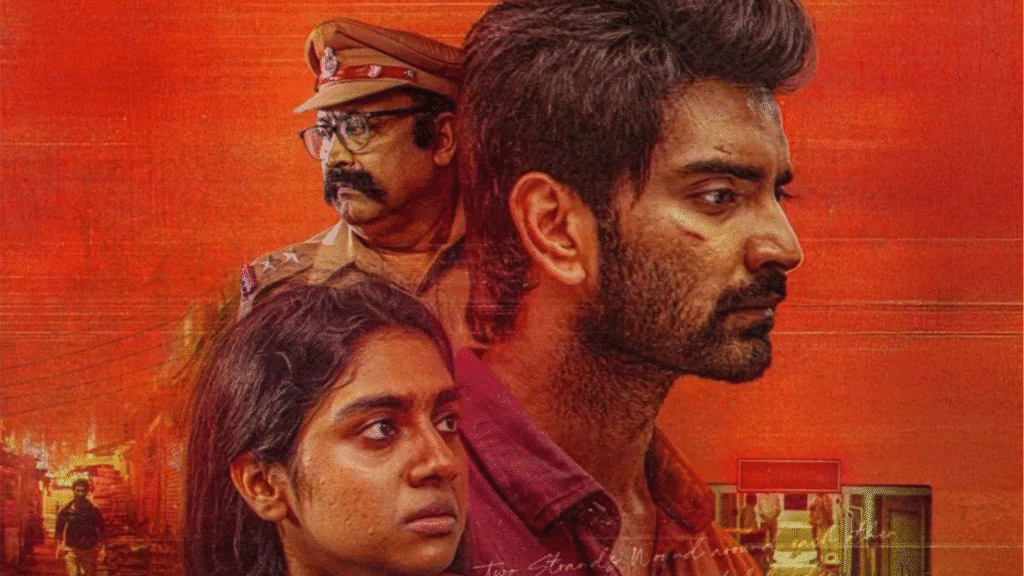A distressed mother. A baby mysteriously switched. A father haunted by past addictions but driven by newfound purpose. DNA, directed by Nelson Venkatesan, grips you with a slow-burning emotional urgency. It’s the kind of story that doesn’t just keep you hooked—it forces you to question your own perceptions of truth, sanity, and justice. Naturally, audiences across Tamil Nadu and beyond are asking: Is DNA based on a true story?
Tamil cinema is no stranger to grounded thrillers that feel all too real. Think Jai Bhim—a gut-wrenching legal battle drawn from real-life injustice—or Visaranai, where systemic abuse felt so close to the headlines. DNA seems to walk the same line, weaving emotional realism with investigative tension.
But is it fact, fiction, or something in between?
Must Read: DNA Movie Review: A Gripping and Emotionally Charged Thriller That Stays With You
What Lies Beneath: Fiction Rooted in Familiar Fears
DNA taps into some of the most unsettling and under-discussed realities of our society—hospital negligence, infant trafficking, and the quiet suffering of women navigating motherhood while battling mental health challenges.
In a country where overburdened healthcare systems often leave patients vulnerable, and where the stigma surrounding psychological disorders remains deeply entrenched, the film’s plot feels disturbingly close to reality. The fear of not being believed, the helplessness of a mother sensing something is wrong, and the systemic failure to protect the vulnerable—all resonate with real incidents that have made headlines and whispers alike.
What makes DNA so compelling is how it reflects a collective societal truth—where trauma is dismissed, women’s voices are silenced, and institutions, meant to heal and protect, sometimes do just the opposite.
Mental Health, Mothers, and Misunderstanding
At the center of DNA is Divya, a new mother diagnosed with Borderline Personality Disorder, who insists her baby was switched right after birth. Her condition becomes both a lens and a barrier—her voice, constantly doubted even by her family, reflects the painful truth many women with mental health challenges face.
It’s this emotional layering that makes the film feel eerily plausible. The quiet horror of being unheard. The societal impulse to doubt women’s intuition. The institutionally embedded fear of being labeled “mad” when you’re right all along.
These aren’t plot devices. They are lived realities for many women in India.
Echoes of Real Cases
While the story isn’t lifted from headlines, its themes mirror incidents that have shaken India before. The 1990s saw the chilling Sister Abhaya case, where truth was buried under religious and institutional power. Other lesser-known cases have surfaced involving hospital record tampering, baby smuggling rackets, and patients silenced under the pretext of unstable mental health.
Could DNA have been influenced by such stories? Possibly. Director Nelson Venkatesan is known for digging into the moral gray zones of society, and DNA is no exception.
Cinematic Realism That Hits Home
The film’s quiet realism—the subtle breakdowns, the grimy hospital corridors, the tense courtroom exchanges—makes it easy to mistake fiction for fact. Atharvaa and Nimisha Sajayan don’t play characters; they seem to become them. Anand’s desperation, Divya’s silent suffering—it’s not hard to imagine people like them in the real world.
Even the antagonist—a matriarch running a baby trafficking ring—is written not as a caricature, but as a disturbing reflection of how exploitation can be normalized in the shadows.
So, Is It Based on a True Story?
No. DNA is not based on a specific true story.
But it feels like it could be.
It’s a fictional account grounded in terrifyingly real issues: the societal neglect of mental health, the trauma of parental loss, and the harsh reality of institutional apathy. It may not draw from one news report, but it reflects a collective truth—of women not being believed, of justice being painfully slow, and of how fragile identity can be in the face of systemic failure.
DNA isn’t trying to recreate history. It’s trying to confront us with truths we often overlook. And that’s perhaps what makes it even more powerful than a true story.


